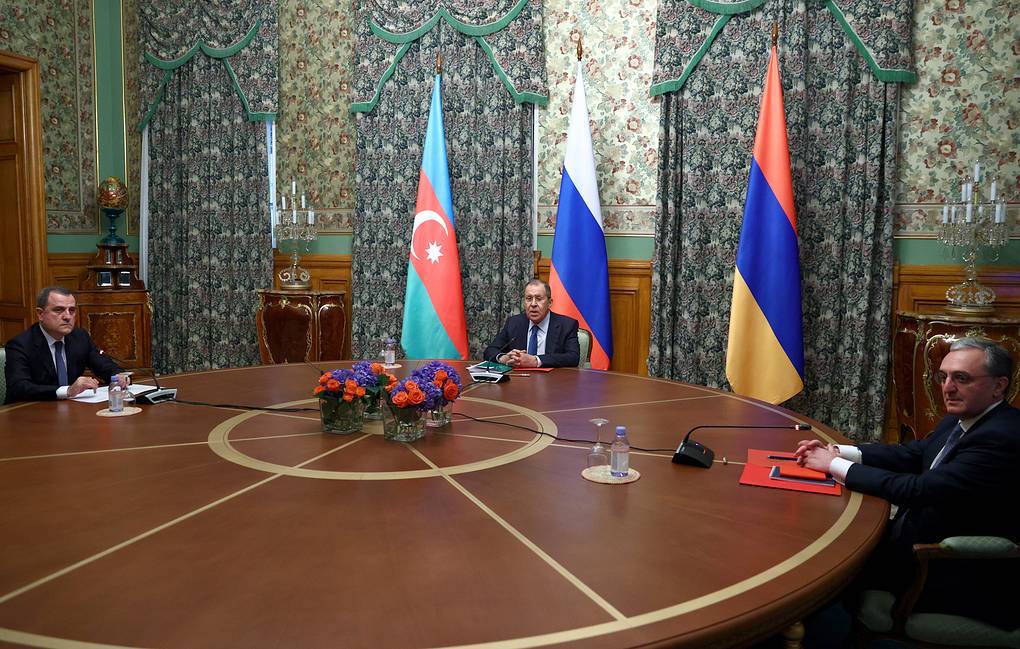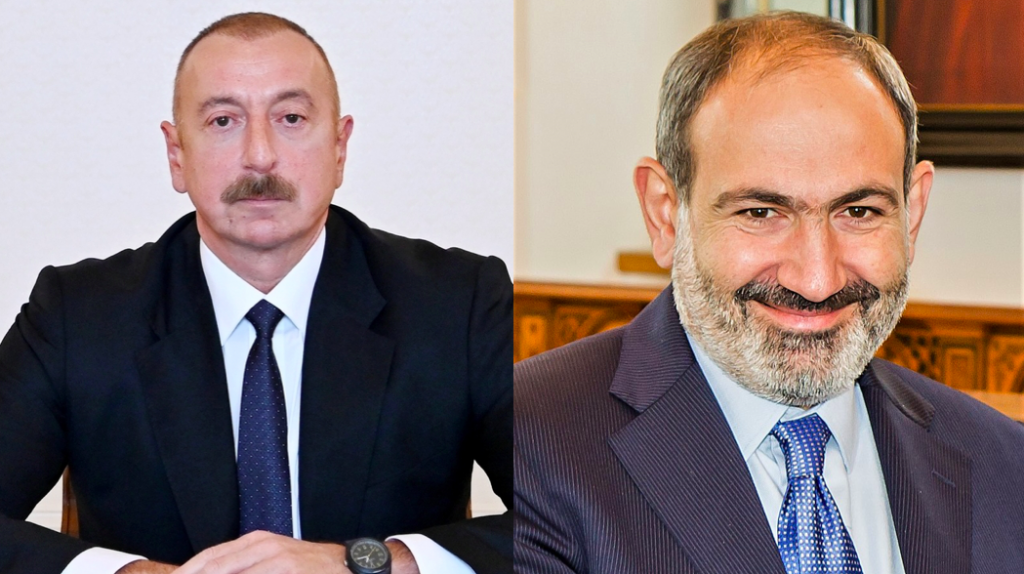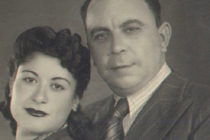In war, the party with the most human potential and military equipment will succeed. Azerbaijan surpasses Armenia in all aspects. The population of Azerbaijan is five times larger than the population of Armenia, and its military budget exceeds the total budget of Armenia.
The Azerbaijani army launched a military operation in Nagorno-Karabakh on September 27. Negotiations that lasted 27 years had not yielded results, and any continuation of this war will aggravate Armenia’s domestic problems.
One immediate impact has been on its national healthcare service. After the first day of war, Yerevan announced an urgent need for a blood bank. Civilians not in a critical state were barred from attending hospital due to the large number of wounded people, and young people have been banned from leaving Armenia.
How did Armenia occupy Azerbaijani lands in the 1990s?
Armenians living in Nagorno-Karabakh began agitating for automony in the late 1980s. Former Soviet leader Mikhail Gorbachev failed to prevent this separatism.
On the eve of the collapse of the USSR (Union of Soviet Socialist Republics), nationalist Armenians began independence rallies and took up arms. Azerbaijanis living in Nagorno-Karabakh did not have weapons. They hoped that Moscow would solve the problem, but this did not happen.
Armenian armed forces began ethnic cleansing Nagorno-Karabakh of Azerbaijanis using mercenaries from Armenia and around the world. They were also assisted by military units of the former USSR.
No sooner had Azerbaijan gained its independence then it was forced into a war against Armenian separatism. But in those years, there was no Azerbaijani army. They were powerless to prevent Armenians who were targeting the civilian population and committing massacres, and quickly occupying Azerbaijan’s territory.
Today, the Armenian army in Nagorno-Karabakh is trying to use the same tactics, deliberately firing rockets at Azerbaijani settlements in order to inflict casualties among the civilian population. However, this time round Azerbaijan has an army.
Over the past 27 years, the government in Baku has invested tens of billions of dollars in building a strong army equipped with a strong military capability. Azerbaijan has purchased drones from Israel and Turkey, which are enabling it to precisely target and destroy military equipment of the occupying army. In contrast Armenia, where a fifth of the population live below the poverty line, does not have such weapons.
The people of Azerbaijan are determined to win this war once and for all. Young Azeris are enlisting in the volunteer army, and it is fuelling a feeling of both military and moral superiority on the side of Azerbaijan.
What is important now is to control the roads leading from Armenia to Nagorno-Karabakh. That was the purpose of counter-offensive towards Murovdagh and Fuzuli. The Azerbaijani army has already liberated Fuzuli, Jabrayil and Zangilan, cutting the separatists from Iran, which is sympathetic to Armenia.
The war in Nagorno-Karabakh remains under the world spotlight. Major states and international organisations have called for a ceasefire, which are normal and to be expected.
For Azerbaijan, a new ceasefire can be declared and negotiations for a permanent peace can commence, on one condition: the Armenian army must leave Azerbaijani territory! Despite pledges for a truce, it appears the fighting is set to continue because Yerevan does not accept this condition.
The United States and France, which are the co-chairs of the OSCE Minsk Group, have little influence over the South Caucasus. French President Emmanuel Macron’s policy in the region is wrong.
Former French President Nicolas Sarkozy had good relations with both Armenia and Azerbaijan, visiting both countries during his presidency. To date, Emmanuel Macron has only visited Armenia after he became president.
Macron has shown a clear bias towards Armenia, that is also manifest in his response to events. Macron’s recent statements continues to defend Armenia, which in turn is damaging French-Azerbaijani relations. Baku is now highly unlikely to accept any mediation initiatives presented by the French.
Unlike Macron, the US President Donald Trump does not want to get involved in the Azerbaijan-Armenia conflict. Trump’s neutral position is preferred by Baku.
Of the MINSK co-chairs, only Russia can interfere in the process. In the early days of the war, the Kremlin also preferred to remain neutral. However, the Kremlin has begun to increase pressure in recent days.

First, Russia continues to send military supplies to Armenia. Second, a recent statement by the Russian Foreign Ministry expressed concern over mercenaries from Syria and Libya arriving in Nagorno-Karabakh.
Azerbaijan does not use mercenaries. President Ilham Aliyev has repeatedly stated, the human resources of the Azerbaijani army are sufficient and there is no need for additional manpower. Armenia, however, does need mercenaries. For the Kremlin to mention Libya, however, it is effectively pointing the finger at Turkey for any mercenaries arriving in the South Caucasus from the North African country.
The Russian Foreign Ministry arranged a meeting of the Azerbaijani and Armenian foreign ministers in Moscow on 9 October. The ceasefire announced after the meeting quickly evaporated, as anticipated in Azerbaijan. The problem is that Moscow does not do anything to implement the “step-by-step solution” plan required to advance the situation. We have witnessed this many times.
It would be better for Baku officials to insist on a different format for the negotiations of 2 + 2 (Armenia and Russia on the one hand, and Azerbaijan and Turkey on the other). It is in Azerbaijan’s interests to transfer Turkey’s growing role in the region onto the negotiation table.
Moscow will not be able to refuse Baku’s request. The Russians are likely to accept Ankara’s mediation in the Nagorno-Karabakh conflict, similar to the situation in Libya and Syria. All depends on the official position of Baku.
Armenian Prime Minister Nikol Pashinyan has been referencing Turkey frequently throughout the conflict. Pashinyan has two goals in this. His first is that by framing the conflict as if Armenia is fighting against the Turkish military in Nagorno-Karabakh, Pashinyan can downplay the achievements of the Azerbaijani army. Pashinyan’s second goal is to ensure Russia’s continued military support to Armenia.
Turkey is a strategic ally of Azerbaijan, and everyone in the world accepts it. Turkish officials openly say they are ready to provide any support to Azerbaijan. However, there is no need for the participation of the Turkish troops in the operations of the Azerbaijani army. It is also a fact that Turkey’s public support for Azerbaijan plays a stabilising role in the region.
Firstly, Turkey protects its strategic interests in the South Caucasus, as it does elsewhere in Libya, Iraq and Syria. Russia has also begun to take this into account. It is no coincidence that during the war in Nagorno-Karabakh, Russian and Turkish foreign ministers have spoken several times on the issue.
Secondly, Turkey’s military alliance with Azerbaijan sends a message to Armenia that Ankara, like Baku, demands the unconditional liberation of Nagorno-Karabakh and surrounding areas.
Nevertheless, Nikol Pashinyan yearns for Moscow’s military support and by any means necessary, despite there being no need for Russian intervention. The war is going inside Azerbaijan and Russia recognises the territorial integrity of Azerbaijan.
Armenia tried to spread false information that Turkish F-16 planes had shot down their military planes over Armenia, yet it could not offer any proof. Yerevan was hoping to stir Russia into action against Turkey. Pashinyan went as far as saying Russia’s military bases in Armenia could be used for such operations, despite Pashinyan having no authority on a decision for the Kremlin.
Armenian Government spreading disinformation via social media
Since 10:00 am today, two F-16 fighter jets of the Turkish Air Force flying from Kurdamir, as well as the #Azerbaiajan’i SU-25 fighter jets, Bayraktar reconnaissance UAV fired rockets at settlements of #Martuni and #Hadrut.
— Government of Armenia (@armgov) September 30, 2020
Russia is aware that taking Armenia’s side in the Nagorno-Karabakh war will increase regional risks for itself, with at least two negative consequences
First, if Russia directly supports the Armenians in Nagorno-Karabakh, it will strain relations with Azerbaijan and Turkey. Logically, this is not in the interests of the Kremlin, because although Armenia is a military ally of Russia, the Kremlin also has a good partnership with Baku and Ankara, which is beneficial for all parties.
Azerbaijan and Turkey are Russia’s main economic partners in the region, and joint projects are being implemented. Is the Kremlin ready to give up all this for Nagorno-Karabakh?
Secondly, if Russia directly supports the Armenians in Nagorno-Karabakh, the geographic scope of war will expand, potentially creating dangerous processes for Russia in the North Caucasus.
If Russia wants the war to end, it must put pressure on the Armenian government to implement a “phased solution” to the Nagorno-Karabakh conflict. Without this plan, it will not be possible to stop the war. President Ilham Aliyev will not suspend the armed offensive to liberate his territory.
Azerbaijan and Turkey want a one-time solution to the problem. At the last meeting of the Security Council, Ilham Aliyev said that the Azerbaijani people demand a permanent resolution, and the Azeri President intends to complete this process this time round.
In the past four years Russia has twice thwarted Azerbaijan’s efforts to settle the long-standing occupation. The Azerbaijani army launched a counterattack against Armenian forces in April 2016, liberating part of the territory before advancing. Calls were made to Baku from Moscow, and Baku was assured that a “phased solution” would be implemented if a ceasefire was declared. Moscow did not fulfil this promise.
In July of this year, the Kremlin again intervened as skirmishes were taking place on the Armenia-Azerbaijan border to warn Baku off. It only delayed the inevitable, and this time the situation is different, as Turkey’s diplomatic involvement has effectively neutralised the pressure from Russia on Azerbaijan.
Another vital part of this conflict it the information war between Azerbaijan and Armenia, which is currently in full swing. During the occupation of Azerbaijan territory in the 1990s, the Azeris were under an information blockade. Coverage from Russian and Western media mainly reflected the Armenian position.
Azerbaijan has managed to cut through the media bias, as reflected in the more balanced media coverage on the current conflict. The press services of Azerbaijan’s Ministry of Defence and the Ministry of Foreign Affairs have worked hard to inform both domestic and foreign audiences, and refute Armenia’s disinformation campaign.
The countries defending Azerbaijan in the war are: Turkey, Pakistan, Afghanistan, Bosnia and Herzegovina, and Ukraine. This number will increase. Officially only the small Greek Republic of Cyprus supported Armenia’s aggressive policy.
Ethnic Azerbaijanis in Iran’s Tabriz show solidarity with Baku amid clashes in Armenia-occupied Nagorno-Karabakh, demand Tehran closes border with Armenia which is reportedly being used to transfer military equipmentpic.twitter.com/9qHFesD76x
— DAILY SABAH (@DailySabah) October 1, 2020
Meanwhile, Iran’s position is in the spotlight. Images of Russian military equipment being transported via Iran to Armenia and Nagorno-Karabakh have spread on the internet. Tehran has denied the allegations.
Representatives of the Iranian religious leader in the province of South Azerbaijan issued a joint statement that Nagorno-Karabakh is a part of Azerbaijan and defended the Azeris in the war against Armenia. Such a policy is expected, otherwise the protests of ethnic Azeris living in Iran against the Iranian government could well intensify.
Azerbaijan must activate its friends in Europe
By openly supporting Armenia, President Emmanuel Macron lost France its status as an impartial mediator in the conflict, and damaged relations with Azerbaijan. It is more than likely relations between Baku and Paris will return to normal after the Azerbaijani army successfully completes its military operation in Nagorno-Karabakh and forces Armenia to make peace. However, such is the wariness of Baku towards the current resident of the Élysée Palace that full normalisation between the two countries will only be possible with Macron’s successor.
Since gaining independence from the USSR in 1991, Azerbaijan has tried to build a good partnership with France. Political and economic relations have developed. Nevertheless, the Armenian Diaspora in France has always tried to hinder these relations. For this reason, Baku objected to the appointment of France as the third co-chair of the OSCE Minsk Group from European countries in the mid-1990s. Azeri officials had wanted Germany, a neutral state, to be the third co-chair. However, the chairman of the OSCE at the time appointed France as the third co-chair without taking into account the opinion of Azerbaijan.
Despite this, normal relations existed between Baku and Paris for years. Although former French presidents Jacques Chirac, Francois Hollande and Nicolas Sarkozy sympathised with Armenia and Armenians, they also attached importance to relations with Azerbaijan because they were mediators in the Nagorno-Karabakh conflict. Both Francois Hollande and Nicolas Sarkozy, for example, visited Azerbaijan along with Armenia as French presidents.
Turkey has strengthened its presence in Syria and Libya, and has established close ties with various countries on the African continent. All this is of concern to the French authorities. When a Turkish ship was conducting gas exploration in the Eastern Mediterranean, the main support for anti-Turkish Greece came from Paris. It now seems that French officials are also seriously concerned about the Turkish-Azerbaijani political and military union.
It looks as if Macron’s open support for Armenia is creating other problems too. Unlike previous years, it is impossible for Azerbaijani representatives to now meet with their Armenian counterparts in Paris.
French President Emmanuel Macron (R) with Armenian Prime Minister Nikol Pashinyan (L) in Paris on Nov. 12, 2019
Macron seems to be keen for Europe to take a negative stance towards Azerbaijan too, possibly by trying to pass a resolution criticising Azerbaijan in the European Parliament.
To counter this, Baku must mobilise its friends in Europe. Baku should intensify its contacts with Poland, the Czech Republic, Romania and other friendly countries in the European Union, as well as with the countries that will soon receive Azeri gas. The French President must understand that Azerbaijan also has many friends in Europe, and these countries support the territorial integrity of Azerbaijan.
Meanwhile, the recall of Armenia’s ambassador to Israel opens up new opportunities to expand manoeuvring in Baku’s diplomatic space, which should be fully utilised. Modern weapons sold by Israel to Azerbaijan have been worrying Armenians for years and they cannot prevent it.
The United States is Israel’s main strategic ally in the region. Israel also has many friends in Europe. Baku should seek to expand to dialogue with Israel, and leverage this to create opportunities via the Jewish diaspora in the United States and Europe.
Although Turkey’s current relations with Israel are cold, Ankara will not prevent Baku from continuing its dialogue with Israel for a common victory. Perhaps in the future, Baku will be chosen as a platform for dialogue in the normalisation of relations between Turkey and Israel.
Armenia hopes that by recalling its ambassador from Israel, the Arab world and Iran’s support for Yerevan will increase during the war. However, the Arab states began to establish diplomatic relations with Israel at the request of the United States. Armenia’s hopes for Iran are also wrong. Iranian Azerbaijanis support the Republic of Azerbaijan, as reflected in the rallies in support of Azerbaijan in Tabriz, Ardabil and other Iranian cities. Therefore, Iran will not publicly back Armenia because Yerevan has strained relations with Tel Aviv.
Turkey will also strengthen its influence in the South Caucasus
During the Cold War, Turkey was a US ally in the region. The United States protected Turkey from the USSR. The USSR collapsed in 1991, the Cold War ended, and Turkey no longer needed American support. After that, the United States began to operate in the region without taking into account the interests of Turkey.
The United States has established ties with Turkey’s main enemy, the terrorist PKK, and has given asylum in Pennsylvania to Fethullah Gülen, who wanted a military coup in Turkey. The United States no longer considers Turkey a strategic ally or strategic partner. Such a policy harms America itself, because Turkey has become stronger in the region since the 2000s.
Turkey’s military-industrial complex has developed and produces military equipment by itself. Ankara is also involved in military operations in Syria, Iraq and Libya, and Turkey has become one of the key countries in the Eurasian region.
In tandem with Turkey’s growing influence in Eurasia, Ankara’s military alliance with Baku has also strengthened in recent years. Russia and Armenia did not take this factor into account.
Moscow and Yerevan believed that Turkey would remain a spectator to the occupation of Azerbaijani land. However, in recent years, Turkish President Recep Tayyip Erdoğan has said that talks on resolving the Nagorno-Karabakh conflict are not working and that the occupation of Azeri territory must end.
On July 12, the Armenian army mounted an assault on the Azerbaijani border in the direction of Tovuz. Turkey reacted harshly to this provocation by Armenia. Turkish officials strongly supported Azerbaijan. At the end of July, military exercises began between Azerbaijan and Turkey.
Turkish Foreign Minister Mevlüt Çavuşoğlu congratulates Azerbaijan on Independence Day, highlighting the strong bonds between the two countries in a specially commissioned clip
Can #Azerbaycan‘ın ve Azerbaycanlı kardeşlerimizin Bağımsızlık Günü kutlu olsun. Üç renkli bayrağınla sen mesut yaşa, çok yaşa Azerbaycan! 🇹🇷🇦🇿
18 Oktyabr Dövlət Müstəqilliyi Günü münasibəti ilə qardaş Azərbaycanı ürəkdən təbrik edirəm. 🇹🇷🇦🇿 @bayramov_jeyhun pic.twitter.com/7yWUzdlif9
— Mevlüt Çavuşoğlu (@MevlutCavusoglu) October 18, 2020
Turkey’s political support gave Baku confidence to be militarily decisive should Armenia commit another provocation. That’s what happened last month, prompting the Azerbaijani army to quickly launch a counterattack in the direction of Nagorno-Karabakh.
It’s likely that Ankara’s influence in the South Caucasus will now increase. Pashinyan is urging major powers to stop Turkey in the region. It is impossible. If these great powers cannot get Turkey out of Iraq, Syria and Libya, they will not be able to eject Turkey from the South Caucasus. Azerbaijan is a strategic ally of Turkey, and Georgia is a strategic partner. These two states want Turkey to be in the region.
The top stories from Azerbaijani media immediately after the conflict commenced
The topics most commented on by the Azerbaijani media and websites between September 28 and October 5 are:
- The President of Ukraine Vladimir Zelensky said: “In recent years, Ukraine and Azerbaijan have established close relations at both economic and geopolitical levels. Therefore, Ukraine has stood and will stand in support of this state.”However, President Zelensky said that Ukraine would not provide military assistance to the parties to the conflict: “I think we have a clear, well-thought-out and correct position as a state: we call for dialogue between Azerbaijan and Armenia and the settlement of this conflict.”According to the Ukrainian leader, the recent events and new tensions in Nagorno-Karabakh is a reminder that any frozen conflict can flare up again, even after many years. Therefore, conflicts must be resolved, not frozen. “I think there can be no frozen conflict, because then it will not matter whether it is sabotage or provocation, but it will be an explosion, even if thirty years have passed since the start of the war in one part of the planet or another.”
- In January-September this year, the Baku-Tbilisi-Ceyhan (BTC) oil export pipeline transported 162 million tons of oil through Turkey, marking a 9.3% reduction on the previous year. During the same period last year, 179 million barrels of oil were transported, according to Turkish company BOTAS.The Turkish firm also said $3.522 billion worth of oil has been transferred through BTC since 2006.It should be noted that in 2019, a total of 233 million barrels of oil were transported, which was 8% less than in 2018.Oil produced from the Azeri-Chirag-Guneshli fields in Azerbaijan is imported via the BTC pipeline. In addition, oil from Central Asian producers is shipped to Turkey via the pipeline.
- Chairman of the White Party Tural Abbasli said that the number of deputies in the Azeri Parliament should be increased: “When the population of Azerbaijan was 7 million, the number of deputies was 125, now it is 10 million. 125 deputies are not enough to effectively represent so many voters. We believe that the number of deputies should be increased to at least 151 or 155.”At the first meeting of the autumn session of the parliament, some pro-government deputies also stressed the need to increase the number of deputies. A referendum is needed for this to happen.
- The head of the Center for Analysis of Economic Reforms and Communication Vusal Gasimli made a statement about the economic losses of Armenia as a result of the conflict:“The counterattack of the Azerbaijani Army was difficult for Armenia. As a result of the strikes on the enemy in the first four days, Armenia’s military equipment and ammunition worth more than $1.2 billion were destroyed.”According to Mr Gasimli, the most important thing is the destroyed military infrastructure, which will take decades to restore: “The financial capacity of Armenia’s military losses exceeds twice the amount of its military expenditures in the state budget. At the same time, the cost of military equipment and ammunition destroyed in the first 4 days is equal to half of Armenia’s strategic foreign exchange reserves and one third of the state budget.”
The co-authors of this article are Elkhan Şahinoğlu, a political analyst and director of the Atlas Research Center in Baku, and Elnur Eltürk, a political scientist specialising in Azerbaijan-Soviet relations.
Main image, top, of Azerbaijan President Ilham Aliyev (left), Oct. 2020. Photo © President.az, CC BY 4.0, via Wikimedia Commons; and Armenian PM Nikol Pashinyan, Jan. 2019. Photo © Raimond Spekking: CC BY-SA 4.0 via Wikimedia Commons





